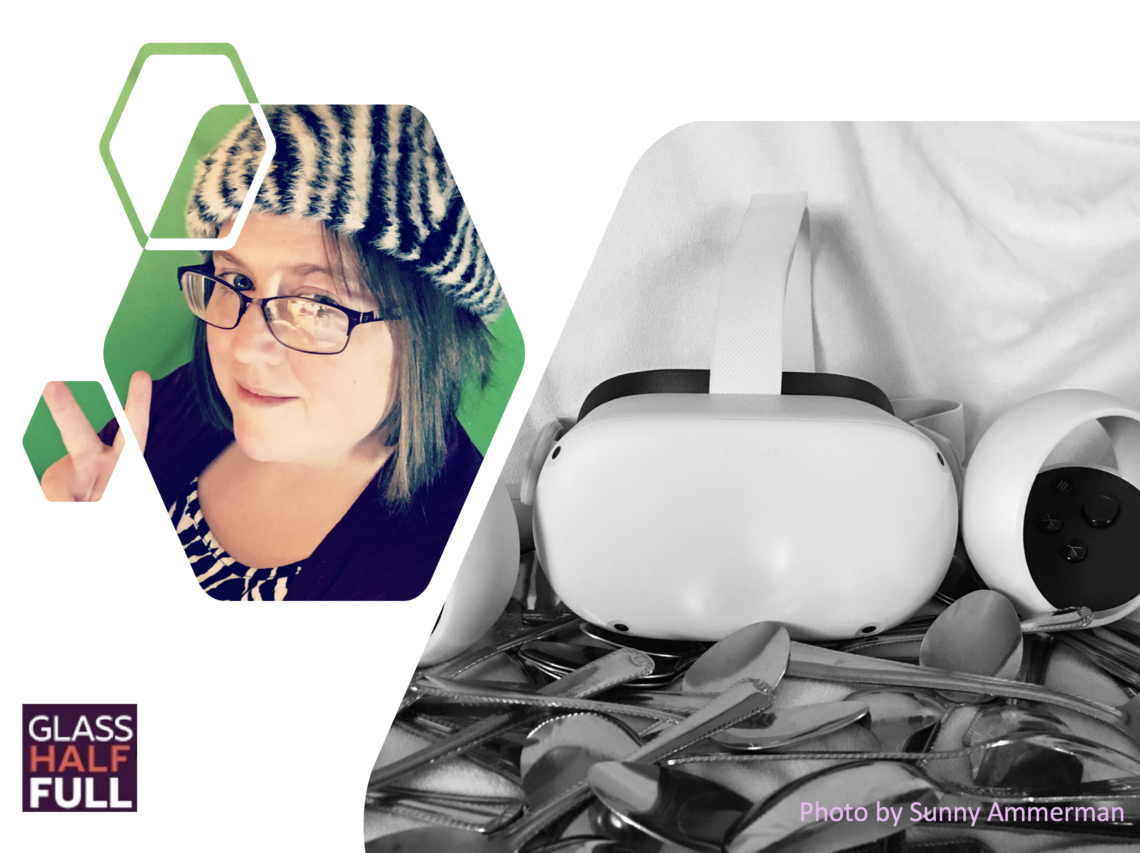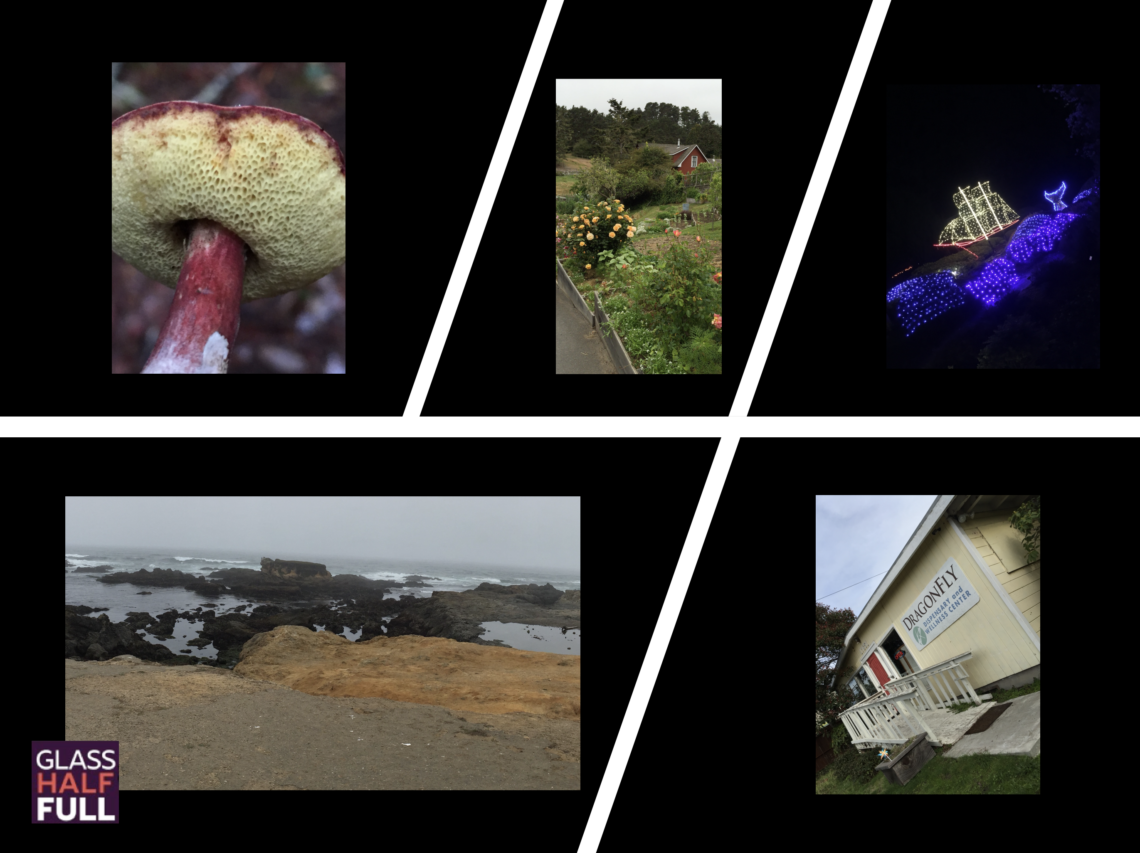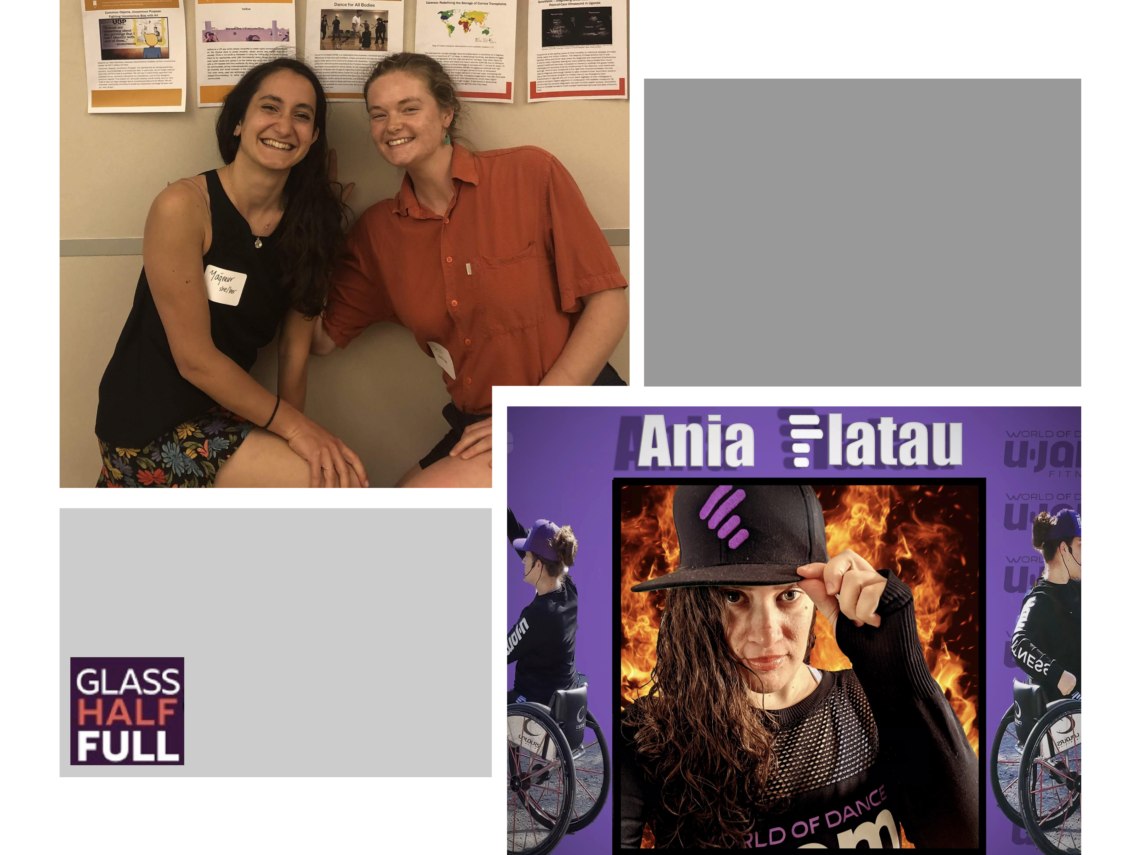My guest for this Glass Half Full podcast episode is Patrick Regan. Patrick is a young man living in Alaska with SMA (spinal muscle atrophy) who uses AAC to communicate. We’ve gotten to know each…
The lyrics to Don’t Laugh at Me speak to anyone who has felt like an outsider. Whether or not you were bullied as a child, this song will likely resonate with you. Steve Seskin, the…
Traditionally the month of October is the time to become aware of people with disabilities — either a visible or invisible disability — but here we’re drawing attention to all those who face physical and…
The Pandemic has brought many changes; for me, it’s ushered in the next chapter of my life. Perhaps the final chapter? With mobility challenges, it was one of two choices: home modifications or move to…
Do you see images of yourself reflected in popular media? As a person with a chronic health condition and/or disability, is your life reflected in movies, television, print, or social media? In this themed podcast…
If Emma Goldman were alive and experimenting with the virtual life, she may have said something like this. Why not dance through the pandemic? It’s good physical exercise, ignites oxytocin, and can bond you with…
Are you ready for three days of workshops, adaptive activities, and discovering resources and services to enhance your quality of life? Peruse the agenda, make plans for November 20-22, and register for the free Virtual…
Believe it or not, this episode has nothing to do with the recent U.S. election. We’re celebrating the 100th podcast episode of the Glass Half Full. But feel free to celebrate our right to vote…
People with anxiety, autism, blindness or low vision, deaf and hard of hearing, mobility challenges, chemical sensitivities, or PTSD may face unique challenges visiting a dental office. Now with the additional barrier — the COVID-19…
That is me; I still have my hands, says the 4-year old girl after waking up in the hospital and being told by her mother that she had lost her legs. The little girl grew…







